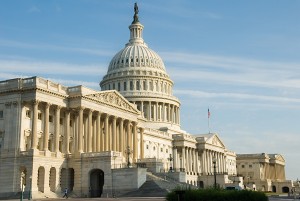 Colby Itkowitz, The Morning Call, Allentown, Pa. –
Colby Itkowitz, The Morning Call, Allentown, Pa. –
WASHINGTON — Candy-makers like The Hershey Co. and Bethlehem’s Just Born say the federal government’s sugar policy isn’t a sweet deal.
Their criticism is one side of a fight in the U.S. Senate that has divided lawmakers not by political party, but over protecting their region’s interests.
In Pennsylvania, where candy-making is huge business, U.S. Sen. Pat Toomey, R-Pa., has been at the forefront of an effort to phase out a sugar price-support program that candy companies complain unfairly raises the cost of sugar.
Other lawmakers from the South and Midwest, where sugar cane and sugar beets are grown, say the sugar program is essential to guard U.S. farmers against foreign competition.
Just Born, the local company that makes, among other candies, marshmallow Peeps, is among the confectioners with a vested interest in seeing the sugar program overhauled so it can purchase sugar at lower rates.
Matt Pye, vice president of corporate affairs for Just Born, estimated that 100 million pounds of sweeteners are purchased annually for the company’s candy production.
Pye said a reduced price on sugar would allow Just Born to expand and create new products — rather than focus its energies on cost-cutting.
“We don’t like to pass on high prices to consumers,” Pye said. “For Just Born, it would allow us to invest more — whether in people, capital or our brand, which benefits this area as well as nationally.”
Last week, Toomey joined lawmakers from across the political spectrum in support of an amendment to a mammoth farm bill that would have ultimately ended the sugar program. It was tabled, but Toomey is trying again this week with his own version, one that makes substantial changes to the program but doesn’t end it completely.
U.S. Rep. Charlie Dent, R-15th District, tried to limit the sugar program through the appropriations process. But his amendment, which would have eliminated government loans for sugar processors whose taxable income exceeds $10 million, also fell short on Tuesday. During a committee vote, Dent had the support of some of the House’s most conservative and liberal members.
Jack Roney, director of economics and policy analysis for the American Sugar Alliance, said in a statement that the failure of Dent’s amendment would help “beat back” the efforts by Toomey in the Senate.
“This was just another attempt by sugar opponents and the large candy companies they represent to harm sugar farmers, and the committee should be commended for overwhelmingly rejecting this scheme,” Roney said.
The American Sugar Alliance has a powerful lobbying presence on Capitol Hill, spending $1.5 million in 2011 and $400,000 in the first months of 2012 on lobbying, according to OpenSecrets.org.
By comparison, the leading candy association, the National Confectioners Association, of which Just Born is a member, spent $292,000 in 2011 and $100,000 in early 2012 on lobbying.
The longstanding sugar program was created to guarantee the price of domestic sugar by limiting how much can be imported. In 2008, changes were made to the program to account for unrestricted sugar imports from Mexico under the North American Free Trade Agreement. Among other things, it ensured that domestic sugar producers supply at least 85 percent of the sugar for U.S. food and beverage companies.
Judy C. Sanchez, senior director of public affairs at U.S. Sugar, a major sugar cane grower in Florida, said there are more than a hundred countries that produce sugar and are subsidized by their government, so their prices are below market value.
“Our government just provides us protections from the predatory practices of foreign governments,” she said.
Both sides say it’s a jobs issue. The sugar industry says the program preserves farm jobs. Opponents, including candy companies, consumer groups and the U.S. Chamber of Commerce, say it does more harm to manufacturing jobs and forces candy production overseas.
Susan Smith, a spokeswoman for the National Confectioners Association, said there is only one candy cane-maker and one gumball-maker left in the United States. Hershey has cited high domestic sugar costs as it moved some of its operations to Mexico and Canada.
Toomey and others point to a 2006 U.S. Commerce Department report that found that for every job the sugar program saves, it kills three manufacturing jobs. They also cite a recent study by Iowa State University that determined American consumers would save an estimated $3.5 billion if the sugar program ends.
Hershey, the country’s largest chocolate producer, has a political action committee that has given Toomey $1,000 so far this year and gave him $5,000 in 2010 when he was a candidate running for the U.S. Senate, according to Opensecrets.org. Toomey has not received donations from the National Confectioners Association.
The Senate is expected to vote on Toomey’s amendment on Wednesday.






